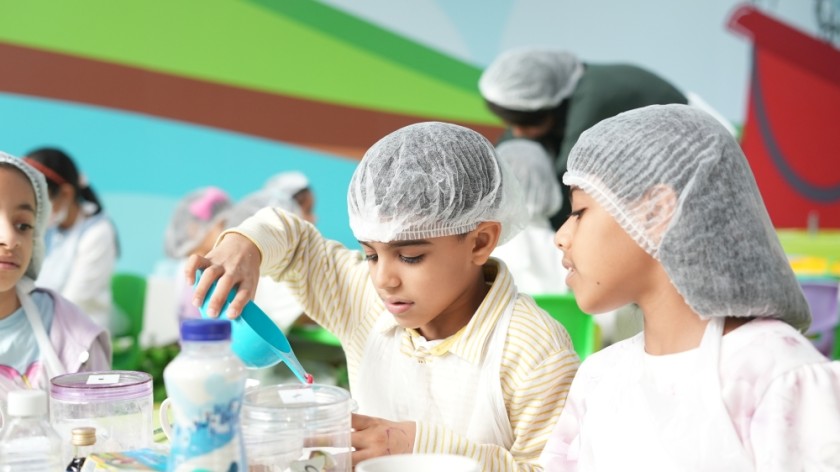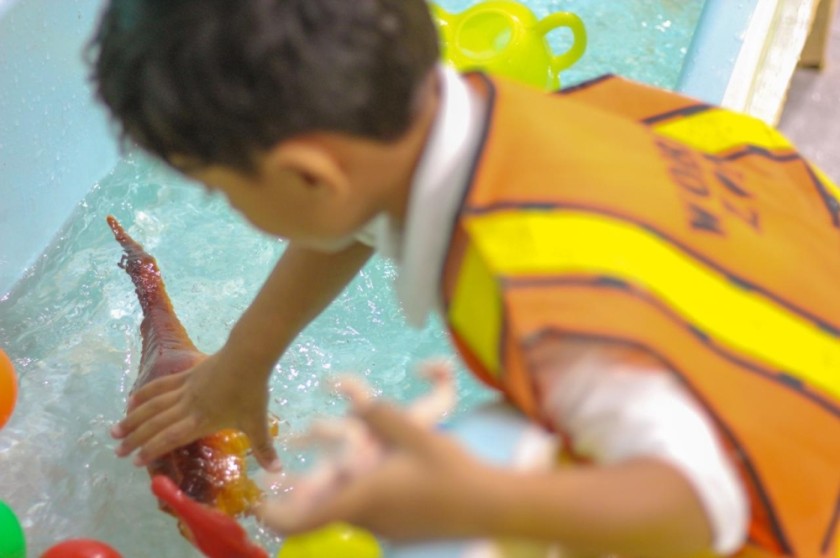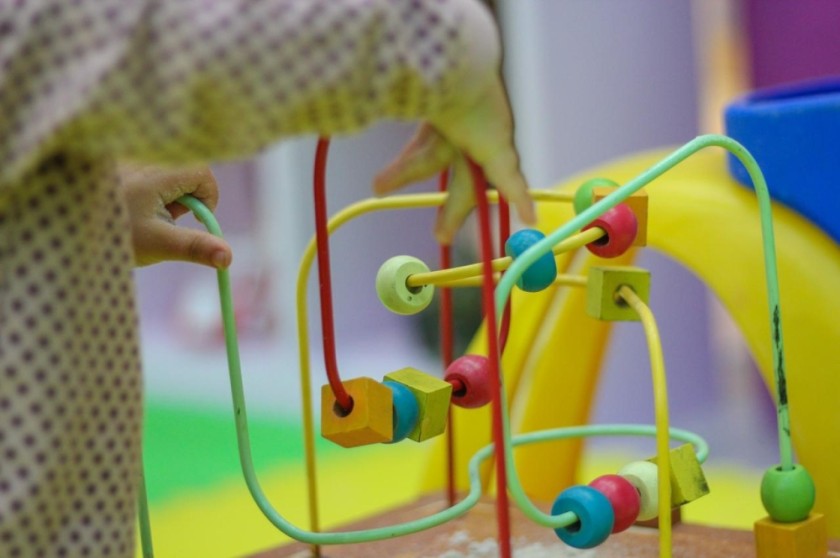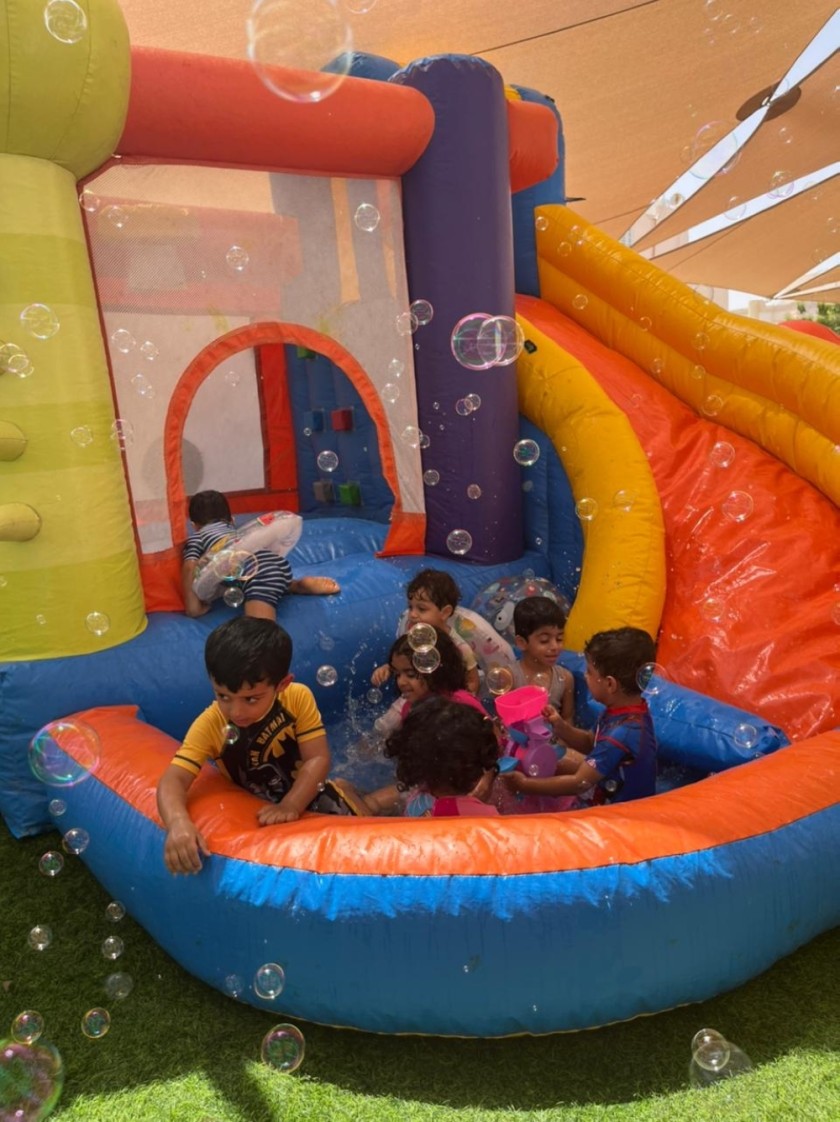

Children’s brains develop rapidly during the early years, and the most important areas of development are movement, language, feelings, social relationships, and communication skills. Through activities that stimulate a child’s senses of taste, sight, touch, smell, and hearing, the child’s brain develops through the formation of neural connections (especially the kids between 6 months to 8 years).

This is called Sensory Play and “has emerged as an essential type of activity that stimulates children’s senses and re-activates the brains and senses correlation with the basic surrounding nature. It promotes exploration skills and following the scientific methods while playing and innovating the playing themes’’, Ibtisam al Abri said, the owner of Patterpillar, which specializes in selling and organizing sensory play activities.

Sensory Play is the primordial way of play for children, but due to the modernised lifestyle many types of entertainment have replaced the authentic way of playing and learning. Those new types of games, unfortunately, have disregarded the basic growth needs of babies hence.

“Kids were raised, in the past, surrounded by nature either on a farm raising animals or by the beach fishing and helping in housework; as a result there would be a higher chance for them to interact with animals and the different substances such as soil, mud, and sand’’, she explained. The provision for sensory play, as she added, became limited due to the modernised lifestyle, therefore Patterpillar has come up with this model in Oman to offer that kind of environment and playing kits.

“This kind of play uses the basic environmental ingredients such as sands, trees, colors, water, organic soil, slime, play dough, instant snow, jelly, foams and etc. Sensory play is paramount to maintaining the healthy growth and learning of sensing and experience’’, Ibtisam said.

Parents can adopt sensory play for their children as an essential part of their lives, and this is not difficult. “It’s all about the basics and nature. parents can take their children to the beach, the public parks, or even just the outdoor backyard at their houses and give them the chance to explore the nature around them or playing with animals. The kids can play on the walls, instead, we should provide them the alternative space for painting and drawing.
Patterpillar offers several types of sensory kits that can be used at home’’, she pointed out. She mentioned that Outdoor activities such as playing with sand or playing with water are really important because they can reduce children’s stress and the negative energy in a very healthy way, it also encourages the child’s creativity and imagination, and plays a big role in enhancing the child’s senses and fine motor skills. It’s challenging, nowadays, for parents to provide sensory play for their children due to four main unintentional reasons.

“Lifestyle is a challenge, where the parents are really focused on the child's appearance or the how others view them and their lifestyle’’, she said. Busy life, as she added, is another obstacle where when both parents are busy in working, the chances are low for the child to go out to visit parks and play. Parents, therefore, try to replace the entertainment by giving the child a device to play with.
She mentioned that “Modern houses are a challenge as well, where nowadays people live in small spaces like apartments so there isn’t a space for the child to run around and play freely.” Types of entertainment are the fourth challenge.

“The appearance of digital gaming and electronics makes the kids want it more and since its more convenient for the mothers although it's more expensive it becomes the first option’’, she shared. “Messy play enhances children’s body control and balance through the large and small movements that they make when they play. Simple actions, such as holding a paintbrush over an easel or pouring water from one container to another, help children focus their fine and gross motor skills, which improves their control and balance with practice’’, she explained.
Messy play is a sociable activity, whether with family or other children, therefore, it will enrich relationships through social interaction. “As young children can’t explain things verbally, it allows them to share their discoveries in different ways through the use of objects and gestures. Children, as well, need to think about their actions in order to be able to convey this explanation which also helps develop their cognition’’, she shared.
Oman Observer is now on the WhatsApp channel. Click here







